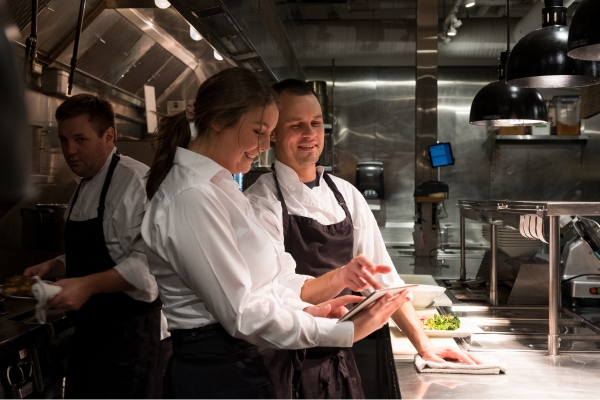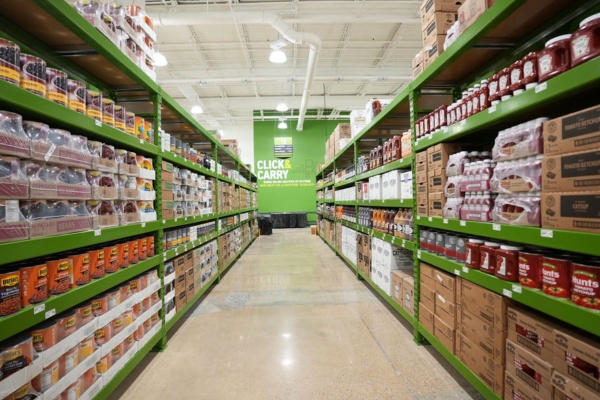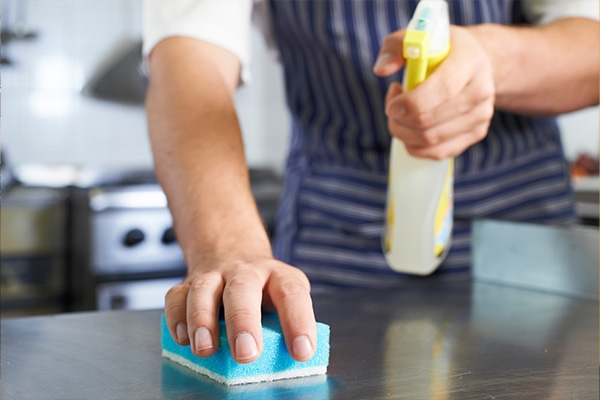September 20, 2021

Restaurant owners know food cost management is essential to maintaining their bottom line. However, even the savviest restaurateurs can still experience inflated food costs despite their best efforts. Looking for advice on how your establishment can tighten up costs and reduce overspending? Our bulk supply store shares all you need to know below.
.jpg)
Ways to Reduce Restaurant Food Costs
Food cost control can be a challenge for restaurants. In fact, 52 percent of food industry professionals consider excessive operating and food costs a primary issue. The first step in minimizing unnecessary spending is to look at the root cause. If you want to lessen costs and maximize profits effectively, look at the top 5 reasons restaurants experience high food costs:
1. Inconsistent Portion Control
One of the most important ways to regulate food costs is to standardize meal portions. To ensure a profit, restaurant owners should always standardize portions and price the menu items accordingly. For example, let’s say your chicken caesar salad pricing is based on 4 ounces of chicken breast in a medium-sized bowl. If your actual serving varies anywhere from 4 to 6 ounces of protein, then your food costs become skewed, leading to profit loss. Ensuring staff are sticking to correct portions and providing them with the right equipment, like scales and ladles, can ensure proper execution based on your calculated costs.
2. Food Waste

Food waste plays a critical role in food costs. According to a survey done by Restaurant Hospitality, managing food waste can lower a restaurant’s cost by 2 to 6 percent. To keep costs in check, you want to ensure most of your product purchases are put to good use. Instead of throwing out chicken bones, make a savory stock that can be used for soups, risotto, braising liquids, and more. Pickle excess vegetables and add them to salads or charcuterie boards. Puree fruits for delicious desserts, healthy smoothies, or as a fun mixer for a cocktail.
3. Lack of Training
Many things, like over or undercooking proteins and not following recipes can lead to poor food quality. If you add too much salt to dishes, char steaks that should be medium-rare, or rough chop vegetables that should be minced, you might have to toss out an improperly prepared item, which means money down the drain. Work with your chef and crew to ensure everyone is trained on recipes, knife skills, and terminology.
4. Spoilage
Food spoilage occurs for a variety of reasons, like not selling through your ingredients quickly. However, spoilage can also be caused by storing food at inaccurate temperatures. Everything from faulty refrigerator equipment to lax food safety regimens can cause food to spoil quickly. Not only is that problematic for your bottom-line, food in the danger zone can cause foodborne illness, affecting your reputation. Installing food safety technology can help mitigate the chances of spoilage and food safety issues.
5. Working with Unreliable Vendors
Precise food costs are contingent on the prices and caliber of your ingredients. There is a delicate balance between purchasing affordable products that deliver exceptional quality. Going “cheap” might save you money upfront, but if what you purchase isn’t up to par, you increase the chances of throwing away items or refunding customer’s meals due to unsatisfactory quality. Partnering with bulk wholesale restaurant supply stores that carry top products at competitive prices can help you maintain consistent quality at lower price points. Instead of going through multiple vendors, to save time and money choose to work with a reputable vendor that has all the essentials under one roof.
Shop Wholesale Bulk Restaurant Food and Supplies
US Foods CHEF’STORE is your one-stop-shop for all your restaurant supply needs. In addition to exceptional foods, eco-friendly packaging, cleaning supplies, and beverages, we have even more in store for our customers. Visit one of our convenient locations to check out our excellent products. Don’t have time to shop in person? You can get all of our items delivered straight to you!


